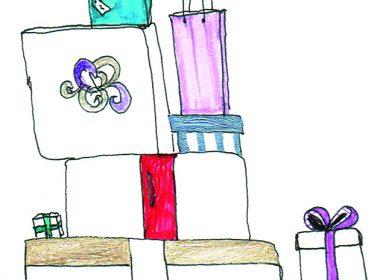As Elle Woods once quipped, exercise gives you endorphins, and endorphins make you happy. However, it’s doubtful that anyone is happy if their exercise involves running to court to defend themselves against a lawsuit. The Legal Information Clinic at McGill wants to demystify how courts work so students know how to assert their rights—even in front of a judge.
Small Claims Court
Everyday cases are often taken to the Court of Quebec’s Small Claims Division, also known as the Small Claims Court. Only cases where the amount being claimed does not exceed $15,000—excluding interest—can be taken to Small Claims. Also, a Small Claims Court does not deal with certain issues, such as residential leases, child or spousal support payments, or damage to reputation. Common issues that do make it to Small Claims Court include suing to obtain a refund for a service done inadequately or incorrectly or suing to make someone pay for a service rendered.
Representation
Unlike other courts, lawyers are /not/ allowed to represent parties at Small Claims Court, though each side can consult a lawyer before the hearing. As a consequence, the parties are on somewhat equal footing, and the lack of lawyer presence speeds the process up.
People in the Courtroom
In the spirit of being a relatively accessible way to seek justice, hearings at Small Claims Courts are less formal than those at other courts in Quebec. Even so, there can be quite a number of people are present in the courtroom. Invariably, there will be a plaintiff—the person suing—and a defendant—the person being sued. A judge—who hears the arguments and decides the order in which people will speak—will also be present, as will a clerk—who ensures that the court records are complete—and a bailiff—who keeps order in the courtroom. Finally, there might be witnesses if either side wishes to bring them to testify, and members of the public who are curious about the case are permitted to attend. Since courts are public, each side can bring friends or family members for moral support during the hearing.
Whereas other courts in the Quebec judicial system typically require people to come prepared to argue the law, Small Claims Court is more permissive of people coming with just the facts of the case, because the judge will try to tease out the legal issues during the hearing. Of course, understanding the law before going to court might help someone decide whether or not they want to just negotiate a settlement with the other side instead of arguing in court.
Language During Court
In Quebec, each side can speak in either French or English during the hearing. However, this often means that one side might speak in French, while the other side speaks in English. Judges can try to switch between French and English to accommodate both sides in such a situation, but parties may consider hiring an interpreter to guarantee that they will understand everything that’s being said.
Evidence
Generally, the plaintiff has to bring enough evidence to convince the judge that their side of the story is true. The judge does not have to be 100 per cent convinced, but they have to be more convinced than not in order for the plaintiff to win. At Small Claims Court, evidence includes documents such as contracts, letters, and photographs, as well as witnesses, who either write a statement for the judge or testify in person.
The Judgment
The judge can decide to issue the judgment immediately after the hearing; however, in some cases, they might want to take more time to think about the case. If the latter occurs, the judge has four months to issue the judgment. In either situation, a copy of the judgment will be issued in writing. Since Small Claims Court is supposed to provide a slightly more informal and faster form of justice, its judgments are final, and, therefore, there is no appeal.
To have an idea of how the judge thinks, past judgments are available through free online databases. One such database is called CanLII. For more more resources in preparation for Small Claims Court, read Justice Québec’s factsheet here. Visit Éducaloi for further accessible legal information, or check out the Young Bar of Montreal’s free service to help people who have to appear in Small Claims Court prepare for their hearing.
To ask your own question, contact the Legal Information Clinic at McGill with the directions found at www.licm.mcgill.ca. According to the Act respecting the Barreau du Québec, only lawyers and notaries can provide legal advice or counsel. The LICM, therefore, only provides legal information. For legal advice, please contact a lawyer.








